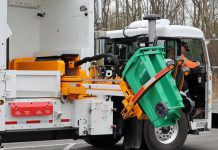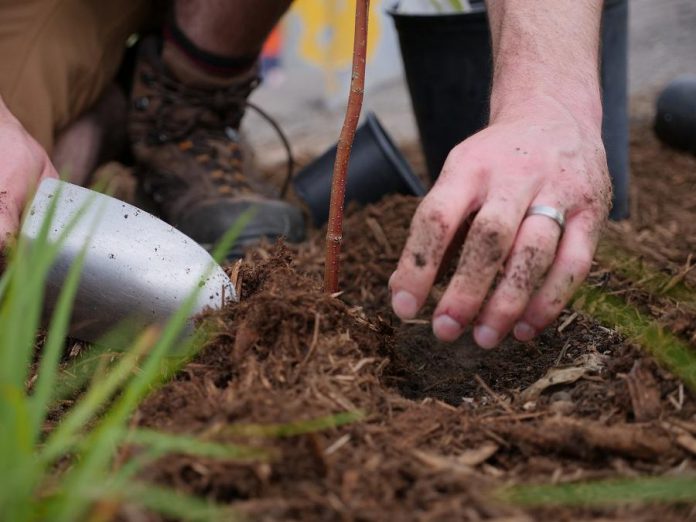
Peterborough is among a growing number of Canadian communities that have declared climate emergencies.
These declarations are intended to acknowledge the seriousness and urgency of climate change, and to accelerate action toward the goal of net-zero greenhouse gas emissions by the year 2050. Net-zero emissions by 2050 is an ambitious and necessary goal.
To get there we need transformative action in three areas:
Mitigation
First, we require swift action to reduce the operational emissions that are released when we heat and cool our homes, drive our cars, and run our businesses.
A focus on reducing operational emissions is called mitigation, and it will help to limit global warming.
Aggressive mitigation is essential to reaching our goal, but on its own mitigation is not enough.
Reduction
Second, we need to reduce the amount of carbon emitted when we create the materials we build with.
These are emissions associated with the extraction, manufacturing and transportation of materials; for example, the insulation we use in our homes. While these emissions account for only 11 per cent of emissions globally, their impact on the climate is entirely upfront and cannot be mitigated in the future.
This type of emission is called embodied carbon, and to meet our local and global net-zero emissions targets, we need to reduce it.
Sequestration
Finally, because we’ll continue to have some operational emissions over the next 30 years, we need to find ways to achieve negative emissions (to store or sequester carbon).
We can do this through reforestation, ecosystem restoration, or even the use of plant-based building materials.
These strategies also help our communities to adapt to the changes in climate that we’re already experiencing, and make us more resilient to future impacts.
Local climate action initiatives
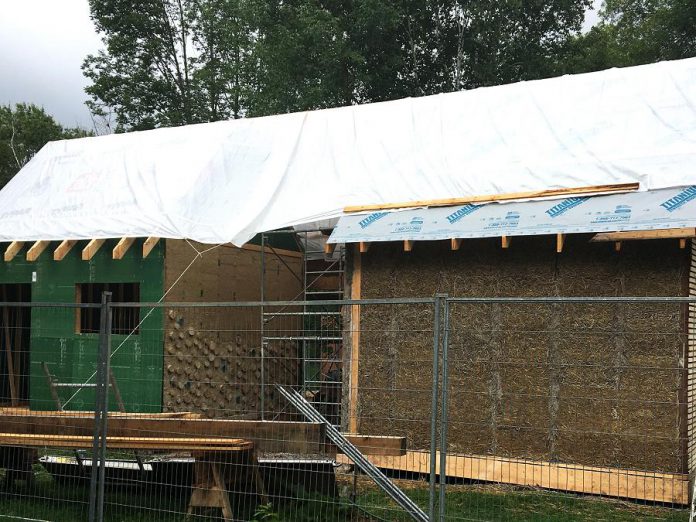
The United Nations has identified 2030 as the critical opportunity for transformative action, and climate emergency declarations are intended to emphasize this urgency. To achieve net-zero emissions by 2050, we need everyone — governments, the private sector, and civil society — to act now.
This can feel overwhelming and unachievable, but we are fortunate to live in an exceptional community. There are some truly inspiring local initiatives that are already creating meaningful and measurable change here in Peterborough.
Sustainable Urban Neighbourhoods (SUN)
GreenUP’s Sustainable Urban Neighbourhoods (SUN) program, which was featured in last week’s GreenUP column, works closely with residents, municipal staff, and other organizations to identify strategic priorities for climate action and to establish Sustainable Neighbourhood Action Plans that will accelerate local efforts during this critical 10-year period.
In addition to planning, SUN also initiates community planting projects that demonstrate the possibilities for change and build capacity for further action. Alongside GreenUP staff, residents and partners in the SUN neighbourhoods have completed nearly 2,000 square metres of urban restoration projects on both public and private lands, measurably advancing climate adaptation and carbon sequestration at the neighbourhood scale.
“The city works as an active partner with community organizations, businesses, residents and other levels of government in tackling climate change,” says Michael Papadacos of the city’s infrastructure management division, who is co-ordinating the city’s efforts to respond to climate change.
“Partnerships such as the work that GreenUP is doing with the city on the Sustainable Neighbourhoods initiative is one key way we can make progress toward our broader community goals of reducing emissions, increasing resilience, and enhancing sustainability in Peterborough.”
Peterborough Moves
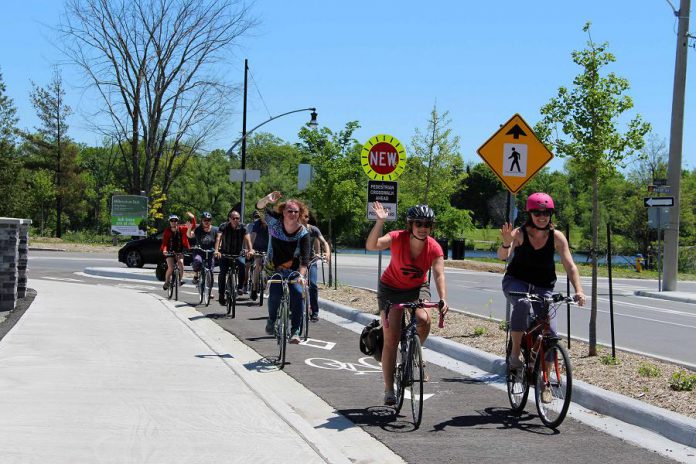
Peterborough Moves is a community partnership that has been supporting walking, cycling, and busing in our city for more than 15 years.
Peterborough Moves offers active school travel programming in every local school, including car-free travel campaigns, cycling skill development courses, transit ridership workshops, and more. Peterborough Moves also co-ordinates an annual commuter challenge called Shifting Gears.
These programs are recognized nationally as successful approaches to increase rates of walking and cycling. Peterborough Moves has helped us to exceed the active transportation target set in our city’s 2012 transportation plan and to decrease local transportation pollution and emissions.
NeighbourPLAN project and school travel planning
Community-based planning initiatives, including the NeighbourPLAN project and school travel planning, contribute to climate action in long-term ways.
These programs work with residents and school communities to envision and build support for the compact and complete neighbourhood designs needed to enable active transportation and reduce our dependence on cars.
Home and commercial energy conservation programs
GreenUP also works alongside our local utilities to maximize the number of households and businesses that are participating in energy retrofit and production incentive programs.
These programs, historically funded by the federal and provincial governments as well as by natural gas distribution companies, increase energy efficiency in existing buildings and encourage the use of renewable energy.
In Peterborough, thousands of households and businesses have completed energy efficiency upgrades. Local organizations are also exploring some exciting community-based models to engage businesses of all sizes and sectors in climate action, with a focus on helping them to set and achieve ambitious carbon reduction targets.
Builders for Climate Action
A new local initiative called Builders for Climate Action is a partnership between the Endeavour Centre for Sustainable Building and GreenUP.
Builders for Climate Action is dedicated to helping the building industry become carbon neutral. The project is creating tools and resources that enable designers, developers, and builders to calculate embodied carbon for a range of materials, and to select options that are low-carbon or even carbon negative.
This initiative is already building capacity and leadership within the local construction sector, and is set to have a national impact.
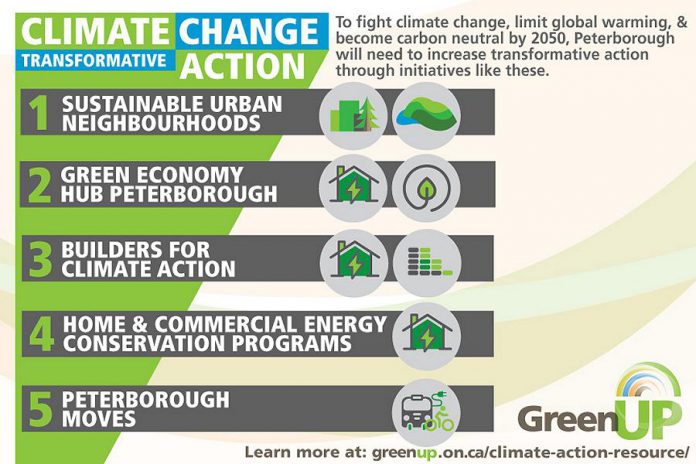
Climate action resources
To achieve net-zero emissions by 2050, transformation is needed. Change is possible, and we can — and are — acting to address the climate crisis.
In 2020, we’ll need to do more, and to do it better and faster. Transitioning to carbon-neutral will not be easy or inexpensive, but we cannot afford inaction. In this region, we’re fortunate to have a wealth of inspiring local initiatives to build upon.
Visit greenup.on.ca/climate-action-resource/ to access the GreenUP Peterborough Community Climate Action Resource and other resources to support climate change action at home and in your community.




